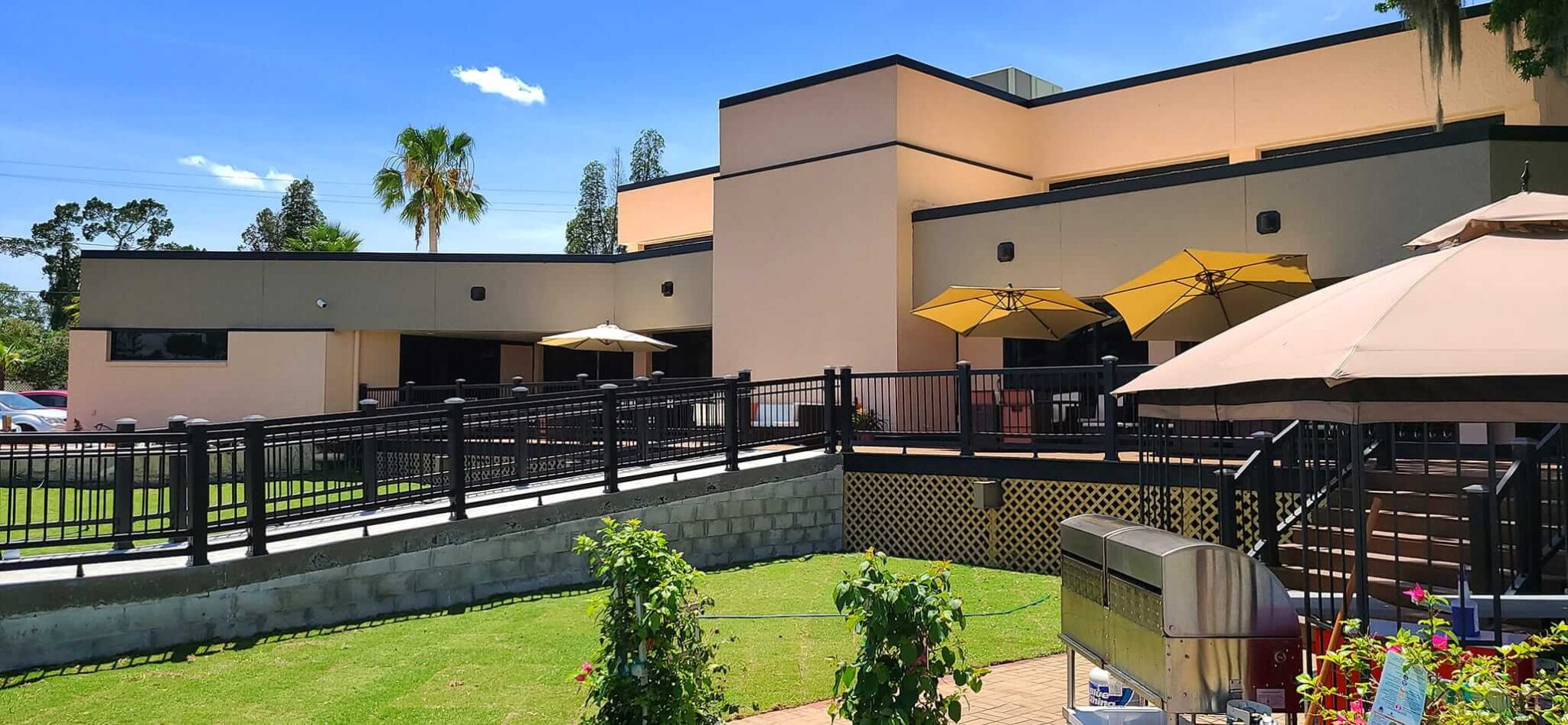Overview: Therapy for Codependency

People in relationships who struggle to function independently may need therapy for codependency. Codependent relationships are unhealthy relationships that often feature one partner who needs to be needed or is excessively dominant over the other partner. One partner tends to be more passive and may have difficulty exercising control over themselves or their life. They may feel insecure or have a difficult time making decisions.
Codependency’s unhealthy aspects can manifest in many different problems, including substance use disorders or mental health conditions. Therapy for codependency generally involves psychotherapy (talk therapy) to identify unhealthy or unproductive behaviors. At WhiteSands, we address problems associated with co-dependency in order to help clients achieve stability and to prevent relapse.
If you are struggling with an addiction to drugs or alcohol and are in a codependent relationship, you can benefit from codependency therapy. We feature a wide range of evidence-based therapies that include family and couple’s counseling in association with substance addiction recovery. Contact us to enroll in our programs, which are always individualized to meet clients’ unique needs.
Recognizing Codependency Symptoms
If you are in a codependent relationship, there will most likely be signs. Codependency symptoms are not always easy to identify, but when you look closely, you may begin to notice them. For instance, some commonplace signs of codependent relationships involve:
- Having an excessive fear of being alone or abandoned.
- Feeling like your partner can’t survive without you and your support.
- Feeling excessive guilt when you do things for yourself rather than your partner or if you don’t include your partner.
- Having low self-esteem.
- Feeling as if you derive your identity or much of your identity from your partner.
- Experiencing unhealthy coping / communicating practices in your relationship.
- You need to feel needed in order to feel positive about yourself.
- Feeling physically and mentally exhausted as a result of your relationship.
- Developing compulsive behaviors.
- Being neglectful of other relationships.
- Feeling held back and unable to meet personal goals because of your relationship.
If you experience these signs and symptoms of codependency, it will be helpful to speak with an expert. By identifying codependent behaviors, you can begin to take important steps to change them.
Codependency Recovery: A Path to Emotional Health
Codependency recovery programs can help you understand codependency and how to change unhealthy patterns of behavior so that you can maintain more healthful relationships. During codependency recovery, you’ll address the behaviors that you and your partner or other loved one exhibit that are non-conducive to a healthy relationship. Many people in codependent relationships don’t actually realize that the way they are relating isn’t healthy. So, our therapists spend some time helping clients identify the behaviors that are codependent.
Once clients understand the codependent behaviors associated with their relationship, they can begin to learn strategies for changing these behaviors and building a healthier relationship that’s free from codependency. WhiteSands offers clients a path to improving their emotional health and relationship health. Codependency can sabotage relationships and become a trigger for substance abuse. It’s important to address codependency with the help of a trained therapist who has the expertise needed to foster healthy relationships.
Codependency Treatment Plan

During a codependency treatment plan, clients can expect to participate in various therapy techniques. Cognitive behavioral therapy forms a substantial part of counseling to address codependency. Cognitive behavioral therapy helps clients understand the connections between their thoughts, feelings, and behaviors. Unhealthy or unproductive thoughts and feelings can lead to unhealthy and unproductive behaviors.
During counseling sessions, therapists will help clients set goals. Although it’s immensely challenging to make major relationship changes or even changes in oneself, it can be accomplished with gradual steps. Many of the therapy goals will embody incremental steps that help clients make the changes they need to support more healthful relationships.
The Role of Family Therapy in Codependency Treatment
Relationships within the family setting can be codependent. WhiteSands offers family therapy and addresses topics like codependent family systems. It’s not always a spouse who is codependent. It can also be a parent and child dynamic or a sibling dynamic. Family therapy or couples therapy can address codependent factors. Our clinicians are highly experienced in treating codependency as it manifests within any type of relationship.
Practical Steps: Overcoming Codependency Exercises
Overcoming codependency is certainly challenging but not impossible. Expect WhiteSands therapists to help clients by assigning overcoming codependency exercises. Our therapists encourage clients to participate in activities that promote healthy relationships. One practical step for breaking codependent habits is to include independent actions or activities each day or week. Therapists might encourage clients to take a walk on their own each morning or to enroll in an activity that is specifically for them–something they will enjoy on their own.
Therapists will also encourage clients to communicate their feelings. Another activity might be to schedule a communication meeting to specifically discuss your feelings and the feelings of the other codependent partner. Healthy communication is an important part of a healthy relationship.
Codependency Treatment Centers:
Finding codependency treatment centers is as easy as contacting WhiteSands. We offer family therapy that addresses codependency in relationships. Often, codependency accompanies clients who have substance use disorders or a dual diagnosis. Codependency can underscore a dysfunctional relationship, which is why it’s important to meet with a professional therapist to get help repairing unhealthy relationships. Healthy relationships can foster the recovery process, and our therapists can help.
Frequently Asked Questions:
What is codependency and why is therapy important for its treatment?
Codependency is an unhealthy pattern of behaviors between two people in a relationship. The relationship is marked by one dominant and one passive person. Often, one person has more control than the other. Codependency can result in dysfunctional behaviors.
What are some common symptoms of codependency?
Symptoms of codependency include one partner who feels good about being needed and one who may feel passive or insecure about themselves. Usually, these relationships are highly unbalanced with one person having all the control and the other having very little control.
How do Codependency Recovery Programs work?
Codependency recovery programs work within the context of couples or family therapy. Therapists address the specific codependent issues that a couple is experiencing in order to help them embrace healthier ways of relating.
What does a typical codependency treatment plan look like?
Codependency treatment often includes evidence-based treatments like cognitive behavioral therapy.
What role does family therapy play in codependency treatment?
Family therapy plays a substantial role in codependency treatment when participants live within a family dynamic.
What are some exercises that can help in overcoming codependency?
Therapists will likely encourage clients to participate in independent activities in order to overcome their codependent behaviors.
What are some reputable codependency treatment centers?
WhiteSands is a leading addiction treatment center that offers codependency treatment. We also offer family therapy that’s designed to help families and partners learn to communicate and relate in healthy ways.
How can someone with codependency start their recovery journey?
If you suspect you may be in a codependent relationship, it can be helpful to meet with a therapist. Codependency treatment can lead to improved relationships–healthy relationships. You can recover from codependency, and WhiteSands can help.
If you or a loved one needs help with abuse and/or treatment, please call the WhiteSands Treatment at (877) 855-3470. Our addiction specialists can assess your recovery needs and help you get the addiction treatment that provides the best chance for your long-term recovery.


























